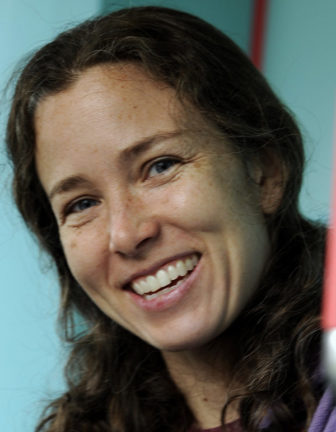Civil legal aid services are a necessary tool in preventing and eliminating youth homelessness. Though most young people do not initially identify their problems as legal in nature, legal advocacy can often help prevent the experience or reoccurrence of homelessness.
For example, barriers to housing and employment can be reduced by mitigating the consequences of a juvenile or criminal record or by resolving open warrants and legal financial obligations. Representing young people in domestic violence proceedings and emancipation can remove barriers to safe and stable housing.
Resolving issues such as identity theft and consumer debt can help young people access credit needed for student financial aid and housing applications. Improving access to and challenging denials of public benefits can provide for basic needs such as food and medical care but can also provide income to maintain housing and services such as child care to help youth maintain employment and access higher education. Helping a young person change their gender marker and name can empower them to feel safe applying for educational and employment programs.
Any minor struggling with homelessness alone has a legal issue, because someone is legally responsible for caring for each child. Minors struggling with homelessness need legal advice to understand their options for safety, to access emergency shelter, education and medical care. Many minors need an attorney to help them navigate and access immigration relief, child protective services, educational systems and juvenile and family court proceedings.
For more information on Juvenile Indigent Defense, go to JJIE Resource Hub | Juvenile Indigent Defense
Providing a young person in crisis with an attorney alone, however, is rarely sufficient. In order to be effective, civil legal aid attorneys need to build strong partnerships with service providers, juvenile court professionals and schools. Strong community partnerships result in an increase in understanding of when an attorney may be helpful (and thus more young people can benefit from civil legal aid), more holistic services for youth and families and an improved ability to identify and address systemic gaps and barriers affecting youth homelessness.
Many youth equate needing an attorney to being in trouble. If the youth is not in trouble with the police, then an attorney seems unnecessary. As a result, many youth do not access the help of a civil legal aid attorney, even when the attorney’s help could be critical in protecting or securing the youth’s legal rights, benefits, safety, medical care, educational programs or housing.
Service organizations + legal aid is best

Erin Lovell
Strong partnerships among civil legal aid attorneys, service providers and schools — including onsite legal intake and outreach as well as shared staff meetings and training opportunities — increase service provider, school staff and youth awareness of the variety of legal systems, rights and issues impacting youth and when a civil legal aid attorney may be helpful. Onsite intake and outreach services also enable youth to more easily connect with civil legal aid attorneys. Civil legal aid attorneys become part of the youth’s support team.
Strong partnerships between civil legal aid and other community service providers lead to more holistic services for youth and families. For example, in Washington state, Legal Counsel for Youth and Children (LCYC) partners closely with YouthCare, Friends of Youth and the Accelerator YMCA and Therapeutic Health Services. LCYC provides direct legal advocacy services to youth ages 12 to 24 who either are or are at risk of experiencing homelessness alone in King County, Wash.
The named service organizations offer a wide range of youth and family supports such as emergency shelter, case management, housing navigation, family reconciliation, rental assistance, mental health and chemical dependency services, and transitional living. Other community partners, such as Therapeutic Health Services, offer counseling for youth and families.
Beyond collaborating to support individual youth and families, these partnerships can improve systemic advocacy. Youth, parents, service providers, schools, attorneys and others have a variety of personal experiences and professional expertise to collaboratively identify barriers and brainstorm potential solutions on systemic problems perpetuating youth homelessness.
Erin L. Lovell serves as the executive director of Legal Counsel for Youth and Children in Seattle. She is a graduate of Northwestern University Pritzker School of Law and the University of Notre Dame.

Pingback: Homeless Washington State Teens: Whose Responsibility Are They? Often, ‘No One’
Pingback: Homeless Washington State Teens: Whose Responsibility Are They? Often, ‘No One’ - Youth Today